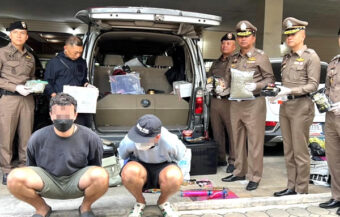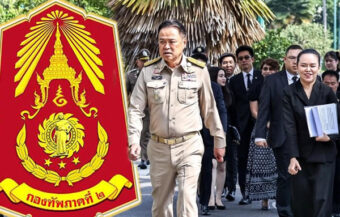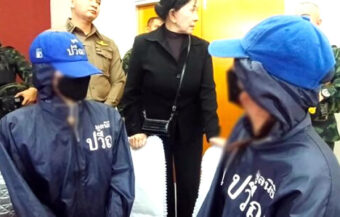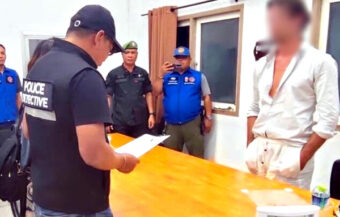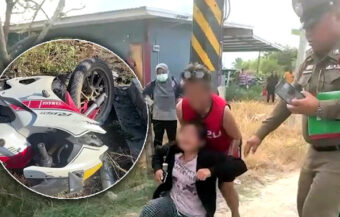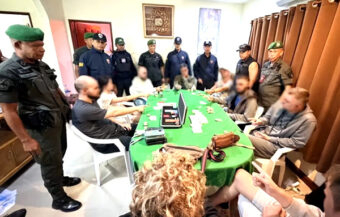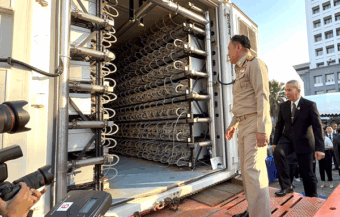A banking crisis erupts in Thailand as authorities freeze thousands of personal and small business accounts in a sweeping crackdown on scam-linked mule accounts, sparking nationwide panic, legal outrage, and an unprecedented rush to withdraw cash immediately.
A banking crisis has exploded across Thailand’s financial system after large numbers of small business owners and everyday account holders woke up to find their bank accounts suddenly frozen. The freeze, triggered by aggressive new tactics from the Technology Crime Suppression Division (TCSD) and senior bank officials, is part of a sweeping crackdown on online scam networks. But the dragnet has ensnared countless innocent people, sparking outrage and panic. On Saturday night, the Bank of Thailand scrambled to contain the fallout, with a top official promising urgent action to reverse the damage.
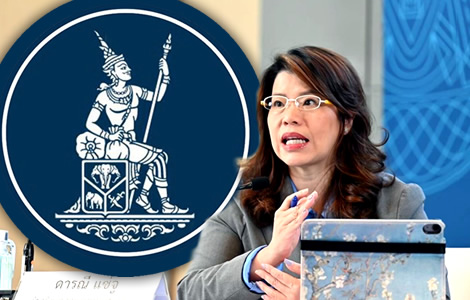
Meanwhile, leading lawyers across the country urged victims to sue both banks and state agencies, calling the mass freezes a blatant abuse of power and a direct assault on property rights. By nightfall, fear had already reshaped the economy on the ground—retailers across the Kingdom began rejecting bank transfers altogether, demanding cash as trust in the system evaporated.
Indeed, it may be an emergency as a growing number of citizens report having their bank accounts frozen without warning.
The Bank of Thailand (BoT), under intense pressure, was forced to respond on Saturday evening. It comes following an online storm of criticism. People from across the country—business owners, employees, and retirees—found themselves locked out of their own funds, triggering widespread outrage and fear.
Account freezes tied to scam crackdown are sweeping up innocent people and causing national panic
According to officials, the account freezes stem from a government crackdown on financial fraud. Specifically, police and regulators are targeting so-called “mule accounts”—bank accounts used to transfer, hide, or launder money obtained through scams.
While the stated goal is to disrupt organised criminal operations, the execution has swept up large numbers of innocent individuals.
The Royal Thai Police, in coordination with commercial banks, have adopted advanced spyware and tracking technologies to follow money trails. These systems automatically flag and freeze any account receiving funds linked to known scam activity.
However, the approach has quickly backfired. Because money often passes through several hands before detection, even law-abiding citizens who unknowingly received funds have had their accounts suspended.
As a result, honest people have been caught in a net meant for criminals.
BoT vows urgent review after outrage over frozen accounts spreads rapidly across social media
On Saturday evening, Assistant Governor of the BoT, Ms. Darunee Saeju, publicly acknowledged the scale of the issue. She confirmed that a crisis meeting was scheduled for Sunday with the Technology Crime Suppression Division (TCSD) to revise the current protocols.
In her words, the central bank aimed to “immediately unlock wrongly affected accounts” and minimise further disruption.
Yet despite these promises, public trust is being tested. Many honest people have been left anxious and rattled.
Over the past 48 hours, social media platforms have been flooded with complaints. Many users expressed disbelief that their accounts had been frozen without notice, explanation, or recourse.
Some said they were unable to pay wages, purchase medicine, or access daily necessities. Others feared being branded as criminals based solely on automated system flags.
The fear has grown so intense that, as reports show, some citizens are now rushing to withdraw all cash from their accounts.
This growing cash panic is already having real consequences. Across parts of Thailand, small businesses have begun refusing digital transfers. Shopkeepers are posting signs that read, “Cash only.”
They fear their accounts may be frozen next, simply for receiving payments from someone under investigation.
Consequently, a ripple effect is beginning to threaten the stability of the broader financial system.
Legal experts condemn the freeze policy as reckless, warning it violates due process and basic rights
Meanwhile, legal professionals have entered the conversation—and they’re not holding back.
Attorney Decha Kittiwittayanan posted a blistering public statement, accusing authorities of treating innocent people like suspects. He argued that freezing entire accounts based only on indirect links to criminal activity was not just overreach.
Certainly, it was a violation of basic legal principles. In a follow-up, he declared that the situation revealed “a failure of the financial and justice systems” and warned of serious economic repercussions.
Other respected lawyers voiced similar concerns. Nitithon Kaewto, known widely as “Attorney James LK,” asked why only the fraudulent transfers weren’t frozen.
“Why disable someone’s entire account without knowing their role?” he demanded. He pointed out that such measures could destroy businesses before guilt or innocence was established.
These decisions, he added, have human costs that cannot be reversed.
Lawyers warn banks have exposed themselves to serious legal risk over unlawful account freezes
Meanwhile, Lawyer Ronnarong Kaewpetch warned that the banking system had opened itself up to serious legal risk. Through his “Lawyer Khu Jai” social media page, he described how citizens were being told by banks that their accounts were frozen “by the system.”
There was no human oversight, no clear justification, and no accountability. In his view, this was not just administrative failure—it was a violation of people’s rights.
According to Ronnarong, multiple legal principles have been breached. First, under Section 420 of the Civil and Commercial Code, anyone causing harm through negligence or illegal action must compensate the injured party. Freezing a customer’s account without evidence, he argued, falls squarely into that category.
He also cited Section 425, which makes banks liable for the mistakes of their employees. Even if a single staff member triggered the freeze, the institution remains responsible.
Furthermore, under Section 9 of the Financial Institution Business Act, banks are obligated to act with honesty, caution, and fairness. Seizing accounts without a legal order or due diligence clearly violates this duty.
The Anti-Money Laundering Act also specifies that only the Transaction Committee or AMLO officers have the authority to freeze accounts. If a bank acts unilaterally, it may be breaching the law.
Arbitrary freezes violate consumer protection laws and give victims legal recourse for full damages
Even more, the Consumer Protection Act requires services to avoid unnecessary harm. Arbitrary account seizures, said Ronnarong, are not just harmful—they are unlawful and unethical. Victims, he explained, have the right to file civil lawsuits.
They can seek compensation for lost income, damaged reputations, missed payments, and emotional distress. If the court finds gross negligence, they can even be awarded punitive damages.
Still, despite these legal arguments, citizens are being left in limbo. Many say their banks are simply referring them to the police. Others report being told to “wait for a review” without a deadline. The BoT, while promising rapid action, has yet to announce any concrete changes.
The only immediate solution offered so far is the AOC Centre hotline. Victims can call 1441 ext. 2 to request review or cancellation of the freeze. However, several users online say they’ve received no clear answers after calling. The process remains opaque and frustrating.
Economic disruption worsens as retailers refuse bank transfers and demand cash amid widespread fear
Meanwhile, economic uncertainty continues to grow. Several business owners said their revenue dropped overnight. One restaurant owner in Khon Kaen said, “We accept bank transfers. If customers are scared to pay digitally, we lose money. We can’t run on cash alone.”
Despite assurances from the central bank, it remains unclear if the entire enforcement approach will be reclassified. What is certain is that the BoT and TCSD are now under pressure to balance fraud prevention with civil rights. Many citizens support efforts to fight scams—but not at the expense of due process and personal freedom.
Banking crisis addressed by the Finance Ministry as Puey research shows only 25% of Thais are bankable
Korean Goldfinger’s warm welcome by Technology and Crime Suppression police at Suvarnabhumi
Bangkok Bank closing accounts held by foreigners without long-term visas. Russian tourists up in arms
Lawyer Ronnarong summed it up best: “Bank accounts are not toys. Property rights are sacred. If banks violate them, they will pay.”
As of Saturday night, no further statement has been released from either the Bank of Thailand or the Technology Crime Suppression Division. However, the chorus of complaints continues to grow louder online. Whether reforms will come fast enough to prevent further damage remains to be seen.
For now, the message from the public is clear: Protect ordinary, genuine people and business concerns, not just the banking or justice system or those who have been scam centre victims.
Join the Thai News forum, follow Thai Examiner on Facebook here
Receive all our stories as they come out on Telegram here
Follow Thai Examiner here
Further reading:
Korean Goldfinger’s warm welcome by Technology and Crime Suppression police at Suvarnabhumi
Tourism cryptocurrency sandbox payment plan is bound to face stiff opposition from the central bank
Thaksin calls for crypto-based bonds. Notes success and beauty of Isan women who marry foreigners
Future Bank of Thailand Chairman Pick warns that the Thai economy faces ‘disaster’ without rate cuts
Trump’s trifecta triumph means Thailand will be more on edge as he prepares to take power in January


